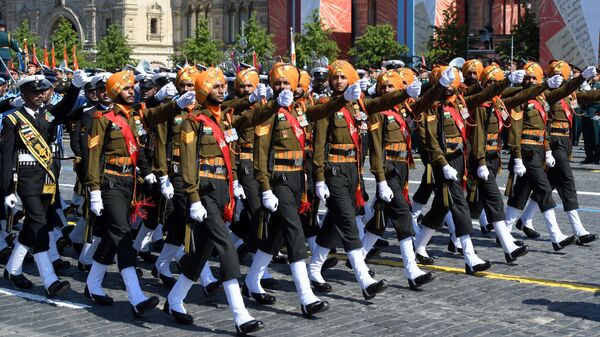India’s Chief of Defence Staff (CDS) General B.S. Rawat, echoing the federal government’s policy objective, said the country should move out of the constant threat of sanctions or dependence on individual nations for its military requirements.
Addressing an e-symposium on defence exports, organised by an industry body on Wednesday, General Rawat said he wanted the private sector to play a decisive role in manufacturing supplies for the armed forces.
“We are committed to winning India’s wars with Indian solutions,” he asserted.
The CDS said India accounts for 9.2 percent of global arms imports, but the government now wants to reduce the import component.
The general suggested a relook at the Make in India theme with three board outlooks. “Firstly Make in India for Import substitution, secondly Make in India for sustained domestic demands, and finally make in India for global exports.”
The CDS was reflecting on the recent threat by the United States to limit growing India-US military relations, if New Delhi went ahead with its plans for the acquisition of the S-400 air defence system from Russia.
“We have always maintained that what we buy is very much a sovereign right,” India’s foreign minister Subrahmanyam Jaishankar asserted during a visit to Washington in October, 2019.
India was the world’s second largest arms importer during 2015-19, with Russia the largest supplier, according to the annual report of Stockholm International Peace Research Institute (SIPRI) released in April this year.
The report however, revealed that Moscow’s share of weapons with Indian armed forces have declined from 72 percent to 56 percent, with New Delhi diversifying its supplies from Israel, France, Denmark, Brazil, Germany and South Korea.
“We cannot depend on foreign governments, foreign suppliers and foreign defence products to meet our defence needs. It is not compatible with the objectives and feelings of a strong and ‘Atmanirbhar Bharat’ (Self-Reliant India)” said Defence Minister Rajnath Singh in a tweet on 13 August.
“A nation that imports a high percentage of its critical military remains vulnerable to the reliability of the supplier even while imposing high fiscal costs,” commented Defence Analyst Uday Bhaskar in a recent article in the English daily The Hindustan Times.
General Rawat said the policy to revamp ordnance factories and other state-run defence manufacturing units was on schedule.
“Corporatisation including public listing of some units would be a way forward to ensure a more efficient interface. The factories would then be better integrated into a larger defence manufacturing ecological system,” he suggested.
Over 80,000 civilian workers of India’s 41 ordnance factories announced plans to go on an indefinite strike in July to protest against the move, but this was deferred after 20 Indian soldiers were killed in a fierce standoff with Chinese troops in eastern Ladakh in mid-June.
The trade unions included one affiliated to the Rashtriya Swayamsevak Sangh, the ideological parent of the ruling Bharatiya Janata Party.
Prime Minister Modi said at a recent seminar that for decades, ordnance factories were being run like government departments, adding that the country and the people working there were suffering because of a limited strategic vision.


